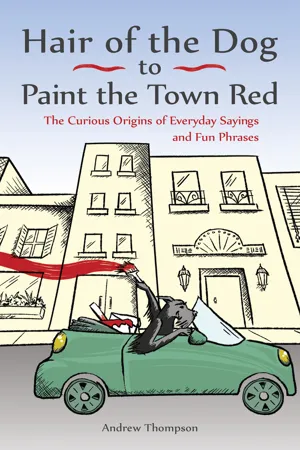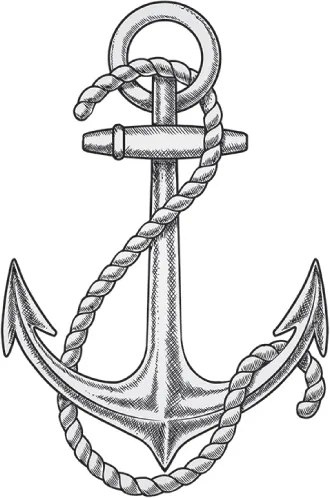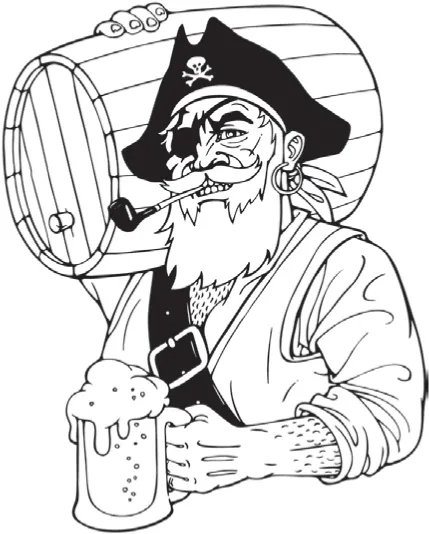
eBook - ePub
Hair of the Dog to Paint the Town Red
The Curious Origins of Everyday Sayings and Fun Phrases
- 274 pages
- English
- ePUB (mobile friendly)
- Available on iOS & Android
eBook - ePub
Hair of the Dog to Paint the Town Red
The Curious Origins of Everyday Sayings and Fun Phrases
About this book
Discover hundreds of entertaining and often hilarious etymological journeys, by the bestselling author of
Can Holding in a Fart Kill You?
English is filled with curious, intriguing and bizarre phrases. This book reveals the surprising, captivating and even hilarious origins behind 400 of them, including:
• Read between the Lines
• Cat Got Your Tongue?
• Put a Sock in It
• Close, but No Cigar
• Bring Home the Bacon
• Caught Red-Handed
• Under the Weather
• Raining Cats and Dogs
Perfect for trivia and language lovers alike, this entertaining collection is the ultimate guide to understanding these baffling mini mysteries of the English language.
English is filled with curious, intriguing and bizarre phrases. This book reveals the surprising, captivating and even hilarious origins behind 400 of them, including:
• Read between the Lines
• Cat Got Your Tongue?
• Put a Sock in It
• Close, but No Cigar
• Bring Home the Bacon
• Caught Red-Handed
• Under the Weather
• Raining Cats and Dogs
Perfect for trivia and language lovers alike, this entertaining collection is the ultimate guide to understanding these baffling mini mysteries of the English language.
Frequently asked questions
Yes, you can cancel anytime from the Subscription tab in your account settings on the Perlego website. Your subscription will stay active until the end of your current billing period. Learn how to cancel your subscription.
No, books cannot be downloaded as external files, such as PDFs, for use outside of Perlego. However, you can download books within the Perlego app for offline reading on mobile or tablet. Learn more here.
Perlego offers two plans: Essential and Complete
- Essential is ideal for learners and professionals who enjoy exploring a wide range of subjects. Access the Essential Library with 800,000+ trusted titles and best-sellers across business, personal growth, and the humanities. Includes unlimited reading time and Standard Read Aloud voice.
- Complete: Perfect for advanced learners and researchers needing full, unrestricted access. Unlock 1.4M+ books across hundreds of subjects, including academic and specialized titles. The Complete Plan also includes advanced features like Premium Read Aloud and Research Assistant.
We are an online textbook subscription service, where you can get access to an entire online library for less than the price of a single book per month. With over 1 million books across 1000+ topics, we’ve got you covered! Learn more here.
Look out for the read-aloud symbol on your next book to see if you can listen to it. The read-aloud tool reads text aloud for you, highlighting the text as it is being read. You can pause it, speed it up and slow it down. Learn more here.
Yes! You can use the Perlego app on both iOS or Android devices to read anytime, anywhere — even offline. Perfect for commutes or when you’re on the go.
Please note we cannot support devices running on iOS 13 and Android 7 or earlier. Learn more about using the app.
Please note we cannot support devices running on iOS 13 and Android 7 or earlier. Learn more about using the app.
Yes, you can access Hair of the Dog to Paint the Town Red by Andrew Thompson in PDF and/or ePUB format, as well as other popular books in Languages & Linguistics & Linguistics. We have over one million books available in our catalogue for you to explore.
Information
CHAPTER 1
As the Crow Flies: The Nautical World
Batten Down the Hatches

MEANING: prepare for trouble or hard times
IN CONTEXT: Here comes the boss and he’s in a bad mood. We’d better batten down the hatches.
Batten down the hatches is a nautical phrase that dates back to the early 1800s. Most sailing ships at the time had cargo holds that opened to the deck via hatches, sometimes called hatchways. These hatches were normally left open or simply covered with a grate that allowed for ventilation. When seas were rough or bad weather was imminent, the ship’s captain would call to batten down the hatches to protect the cargo and prevent the hold from getting filled with rain or seawater. The hatches would be covered with canvas tarpaulins that would be held down with strips of wood, known as battens, to stop them from blowing off.
Cut and Run

MEANING: avoid a difficult situation by leaving abruptly
IN CONTEXT: The business was failing so instead of injecting more money, he decided to cut and run.

Cut and run originated in the early 1700s when the anchor cables of ships were made of rope. To raise an anchor took significant time and effort, especially in deep water. If a ship was at anchor and suddenly came under attack, the time taken to raise the anchor could be costly. To save time and escape with minimal damage, the crew would cut the anchor rope with an ax and allow the ship to run with the wind and escape to safety. The expression was being used figuratively by 1861 when Charles Dickens included it in his novel Great Expectations.
First Rate

MEANING: the very best quality
IN CONTEXT: When it comes to universities, Princeton is first rate.
First rate is a naval expression dating from the time of King Henry VIII. It was during his reign that the British Navy began organizing its ships according to their size and strength. The warships were rated on a scale of one to six. A small ship with little armory was considered sixth rate, while a large and well-armed ship was classed as first rate. The expression soon came to be used to refer to anything of the highest quality.
Square Meal

MEANING: a nutritious meal
IN CONTEXT: Jenny had been dieting for a month so was really looking forward to a good square meal.
Square meal is yet another nautical phrase. British warships in the 17th century had poor living conditions: The quarters were cramped, and most meals were insubstantial. In particular, breakfast and lunch usually consisted of little more than bread and water. However, the final meal of the day did provide some sustenance and generally included some form of meat. This meal was served on a large square tray made of wood, designed in that shape for easy storage. This larger, more nutritious serving became known as a square meal.
Whistle for It

MEANING: a request where you’re unlikely to receive what you want
IN CONTEXT: After buying lottery tickets for years without any luck, I figured I was better off whistling for it.
Whistle for it has its origins in a sailing superstition. Some sailors believed that they could summon the wind on a calm day by whistling for it. The hope was that the wind would blow in sympathy with the sailors and fill the sails so the ship could move on. Others disagreed and believed that whistling was devil’s music. They feared that whistling for the wind would result in a violent storm. Given that a gentle wind or a fierce storm rarely appeared, the expression came to mean what it does today.
Hunky Dory

MEANING: everything is fine and okay
IN CONTEXT: The IRS audited the company’s books but found that everything was hunky dory.
Hunky dory began with a group of American sailors in the 19th century. There was a major street in Yokohama, Japan, called Honcho-dori. It was well-known for housing ladies of ill repute, and when in port after a long voyage, the sailors would frequent the street to partake in the recreational activities being offered. Hunky, meaning “sexy,” was a play on the similar-looking word, Honcho, and when “dori” was added, a phrase was spawned.
Have Someone Over a Barrel

MEANING: helpless; at someone’s mercy
IN CONTEXT: The police had captured the crime on camera, so they really had the accused over a barrel.

To have someone over a barrel alludes to the maritime practice of rescuing a drowning sailor. Once hauled from the water, the other crew members would place the sailor facedown over a barrel in order to empty his lungs of water. The sailor would be rolled back and forth in an attempt to expel the water. Being completely helpless, and often unconscious, the sailor was totally reliant on the other crew members to save him.
Cut of Your Jib

MEANING: a person’s general appearance and demeanor
IN CONTEXT: I’m not sure why I don’t like Rod. I think it’s just the cut of his jib.
Cut of your jib is another expression with naval origins. In common use by the early 1800s, it was used in an idiomatic way in 1824 by Sir Walter Scott in his novel St. Ronan’s Well. The jib of a sailing ship is the ...
Table of contents
- Cover
- Title Page
- Copyright
- Dedication
- Contents
- Introduction—Start from Scratch: Meaning Versus Origin
- Chapter 1—As the Crow Flies: The Nautical World
- Chapter 2—Take a Rain Check: Sports and Games
- Chapter 3—Carry the Can: Work, Trades, and Money
- Chapter 4—Bite the Bullet: Military Matters
- Chapter 5—On the Bandwagon: The Political Realm
- Chapter 6—In the Limelight: That’s Entertainment
- Chapter 7—Purple Patch: Ancient Times
- Chapter 8—Bold as Brass: People and Names
- Chapter 9—In the Doghouse: Literature
- Chapter 10—Bring Home the Bacon: Culinary Delights
- Chapter 11—Apple of Your Eye: Biblical Times
- Chapter 12—Caught Red-Handed: Law and Order
- Chapter 13—Beat around the Bush: Animals and Nature
- Chapter 14—Tie the Knot: Till Death Do Us Part
- Chapter 15—In a Nutshell: Miscellaneous Matters
- Artwork Credits
- About the Author